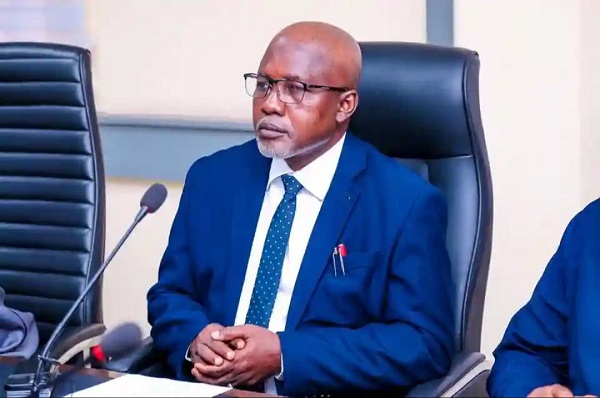
The federal government said on Monday that over three million Nigerians remain internally displaced as a result of flooding, insecurity, and other natural disasters worsening the humanitarian crisis in the country.
Minister of State for Humanitarian Affairs and Disaster Management, Tanko Sununu, who raised the concern warned that millions of citizens’ risk sliding deeper into hunger and malnutrition as global aid funding dwindles if concerted efforts were not taken to address issues of flooding which he said has ravaged farmland across the country.
Speaking during the inauguration of the House of Representatives Ad-hoc Committee on Flood Management and Response, the minister said 65 percent of poor and vulnerable Nigerians were resident in the northern part of the country, with 70 percent of them being poor farmers who no longer have access to their farm lands as a result is flooding and insecurity,
According to him, the combined effects of natural disasters, insecurity, and shrinking donor support have created a “critical humanitarian challenge” for the country.
He said, “Globally, humanitarian funding is shrinking, and Nigeria is not exempt. Just a few days ago, the World Food Programme suspended some of its activities, which had supported more than 1.2 million Nigerians with emergency transfers in the North-East. This leaves over 300,000 children at risk of malnutrition, while more than 200,000 are already receiving treatment.”
Citing data from the United Nations, the minister said over 24.8 million Nigerians have suffered some form of hunger, while more than 3 million people remain internally displaced as a result of flooding, insecurity, and other natural disasters.
He said poverty remains unevenly spread across the country, with the North accounting for about 65 per cent of Nigeria’s poor population. Out of this 65 percent, more than 70 percent are smallholder farmers. Sadly, most of them have lost their farmlands and livelihoods to floods and droughts.
He explained that the worsening humanitarian crisis acts the globe has led to the shutting down if about 150 clinics managed by the World Food Programme in the North East and that will affect about 300,000 children suffering from malnutrition leaving us with over 21,200 at risk of malnutrition and over 200,000 receiving treatment for malnutrition.
“In response to the crisis, the Federal Government is strengthening interventions through the National Social Investment Programme (NSIP). The minister disclosed that under the Government Enterprise and Empowerment Programme (GEEP), smallholder farmers have received interest-free loans of ₦300,000 each to help them recover from losses.
He said more than 5.9 million households—(approximately 25 million Nigerians) have benefited from ₦419 billion in conditional cash transfers. The funds, he explained, are meant to cushion the impact of economic hardship and sustain vulnerable families.
“These efforts are part of President Bola Tinubu’s commitment to ensuring that Nigerians maintain dignity of life despite economic challenges,” the minister said. “With the support of the House of Representatives, we will continue to work to protect vulnerable households and restore livelihoods.”
The minister commended the National Assembly for setting up a dedicated committee to oversee humanitarian interventions. He expressed optimism that the move would strengthen transparency and improve the delivery of aid to affected communities.
Nigeria has been one of the hardest-hit countries by the global humanitarian funding squeeze. The United Nations recently warned that its $4.7 billion humanitarian appeal for West and Central Africa is only 36 per cent funded, forcing agencies like the WFP to cut food rations across the region.
Chairman of the newly constituted committee Rep. Maidala Balami said flooding had become more than a seasonal occurrence, describing it as a “national emergency that demands urgent, coordinated, and strategic action.
He said, “Each year, lives are lost, properties destroyed, livelihoods disrupted, and the socio-economic fabric of entire communities severely affected.
“The time for piecemeal approaches is over. What we need is a comprehensive national framework—one that encompasses prevention, early warning systems, emergency response, community resilience, infrastructure development, and climate adaptation strategies.”
The committee chairman urged all stakeholders—including civil society, private sector, and international partners—to join efforts in developing a sustainable national response to flooding and humanitarian emergencies.
“This inauguration is not just ceremonial—it is a clarion call to duty. We shall listen to affected communities, interface with experts, and ensure that our report provides a blueprint for lasting solutions,” he said.



